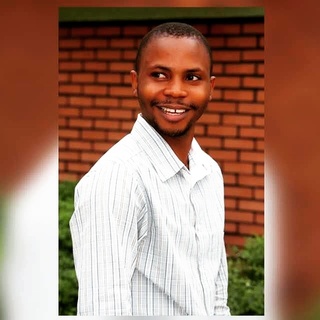Forums » General News
Nigeria's general Elections, the religion perspective
-
All is set for for arguably Nigeria's most keenly contested presidential elections.
With a Christian and Muslim candidate battling for the presidency, the outcome could test the unity of this great African country.
After several months of political campaigns, opinion polls show the contest is too close to call. Over 68 million Nigerians have registered to vote and 83% have their PVCs.
Nigeria's current president, Goodluck Jonathan, is a Christian from the south south. His challenger, Muhammadu Buhari, is a Muslim from the north.
KHCNews spoke to a few voters, here is what they got to say: "We voted for Goodluck Jonathan in 2011," Buhari supporter Osaduhun Oluwadare told KHCNews. "All Nigeria needed him then, but now we need change."
"We want him [Jonathan] to finish what he has started for Nigeria because since he has been there, there has been a lot of transformation," Joy Eze said.
The election was earlier postpone from Febuary 14 the initial date of the election to this weekend because of security concerns over repeated attacks by the radical Islamist group Boko Haram.
With the election rescheduled for March 28, there's been a lot of debate in the national newspapers as to whether the date should have been changed in the first place.
However, it is clear that many Nigerians are concerned about security conditions, not just in Abuja, but across the country. They're concerned whether the elections can take place without violence.
The last time Jonathan and Buhari contested for presidency in 2011, over 700 churches were burned down, hundreds of Christians killed, and thousands of Christian businesses and homes destroyed, mostly by Buhari's Islamic supporters.
Insecurity is still a big issue. Nigeria is fighting a six-year Islamic insurgency by Boko Haram. It has killed more than 13,000 people while trying to turn Nigeria into an Islamic state.
"That is the reason we need God's intervention because He's the only one that can save us," one Christian woman told KHCNews. "He's the only one that can actually do something about this situation."
In the past six weeks, a multinational force led by Nigerian troops recaptured most of the towns in the northeast held by Boko Haram.
But the group's mass kidnapping of more than 500 women and children near the border with Niger was a reminder of the group's potency despite the military offensive.
Religion affliations will no doubt play be a major factor in the election. Nigeria is split down the middle. The south is Christian. The north is Muslim.
Jonathan's base is largely in the prosperous oil-rich south. Buhari's is in the north, which is also Boko Haram's stronghold.
While Jonathan has brought some economic stability to the country during his time in office, some say his indecisiveness in dealing with Boko Haram could hurt him with voters.
Buhari has promised to tackle corruption if elected, but his Islamist leanings are cause for concern. He once called for the implementation of Sharia law in Nigeria. Many Christians are weary of his fanatical tendencies.
The stakes tomorrow could not be higher. Nigeria is Africa's most populous country. It has the largest economy on the continent and produces more oil than any other nation in Africa.
The outcome of the election and any potential uphieval will be felt far beyond its borders.
